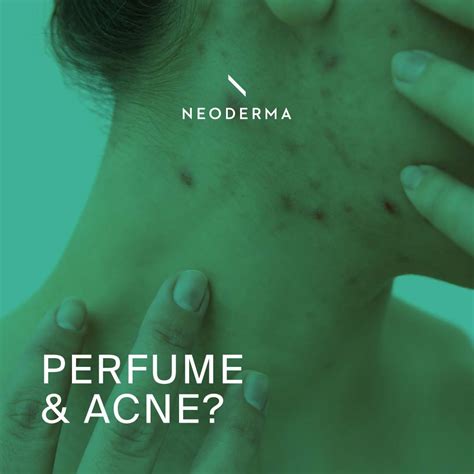Fragrance Acne How To Tell If Its From Perfume
Ronan Farrow
Apr 03, 2025 · 3 min read

Table of Contents
Fragrance Acne: How to Tell if Your Perfume is the Culprit
Acne is a frustrating skin condition, and sometimes, the cause isn't as obvious as diet or stress. One often-overlooked culprit? Fragrance in your perfumes, colognes, and even lotions. If you're noticing breakouts and suspect your favorite scent might be to blame, let's explore how to identify fragrance acne and what you can do about it.
Identifying Fragrance Acne
Fragrance acne, also known as contact dermatitis, presents similarly to other acne types, but its location offers a clue. Look for breakouts:
- Specifically in areas where you apply fragrance: This is the biggest telltale sign. If you primarily notice pimples on your neck, chest, or wrists (common fragrance application points), fragrance is a strong suspect.
- In a pattern matching fragrance application: Do you see a rash or acne clustered along the area where you spray your perfume? This points towards a direct correlation.
- With other symptoms: Along with pimples, you might experience redness, itching, burning, or swelling in the affected areas. These are classic signs of an allergic reaction or irritation.
Differentiating Fragrance Acne from Other Acne Types
It's crucial to distinguish fragrance acne from other forms. While similar in appearance, the key difference lies in location and correlation with fragrance use. Regular acne is often more widespread and influenced by hormonal factors, diet, or genetics. If you experience a sudden change in acne patterns concentrated in areas you apply fragrance, it's a strong indicator.
Common Misconceptions
Many believe only strong or cheap perfumes cause acne. This isn't entirely true. Any fragrance, regardless of price or scent, can trigger a reaction in sensitive skin due to the presence of irritating chemicals, even natural oils or extracts in some perfumes.
What to Do if You Suspect Fragrance Acne
If you suspect your perfume is causing acne, here's what you can do:
1. Eliminate the Suspect:
The most effective way to determine if fragrance is the problem is to completely stop using it for at least 2-4 weeks. Observe your skin closely for any improvements.
2. Identify the Irritant:
If you wear multiple scented products, try eliminating them one by one to pinpoint the specific culprit. This can be time-consuming but crucial for preventing future breakouts.
3. Look for Fragrance-Free Alternatives:
Switch to fragrance-free skincare, makeup, and body products. Opt for products specifically labeled "hypoallergenic" or "non-comedogenic" to minimize pore-clogging ingredients.
4. Consider a Patch Test:
If you want to reintroduce a fragrance, perform a patch test first. Apply a small amount to an inconspicuous area like your inner arm and monitor for any reaction over 24-48 hours.
5. Consult a Dermatologist:
If your acne persists or worsens despite these steps, consult a dermatologist. They can diagnose the cause of your acne accurately and recommend effective treatment options. They may suggest topical treatments, oral medications, or other interventions for managing your skin condition.
Preventing Fragrance Acne:
- Choose fragrance-free or hypoallergenic products: Opt for these when possible, especially for skincare and makeup.
- Apply fragrance sparingly: If you must use fragrances, use them minimally and avoid applying directly to your face and neck.
- Read labels carefully: Pay attention to the ingredient list and be wary of potential irritants like alcohol, essential oils, or artificial fragrances.
- Keep your skincare routine simple: A minimalist approach can help prevent irritation and breakouts.
By understanding the connection between fragrance and acne, you can take proactive steps to prevent breakouts and maintain healthy, clear skin. Remember to be patient and consistent with your efforts. If you are dealing with persistent acne, seeking professional advice is always the best course of action.
Featured Posts
Also read the following articles
| Article Title | Date |
|---|---|
| How Can I Get An Ultrasound Without A Referral | Apr 03, 2025 |
| How Big Should A Classroom Rug Be | Apr 03, 2025 |
| How Big Is A 4 Qt Bowl | Apr 03, 2025 |
| Mary Oliver How I Go To The Woods | Apr 03, 2025 |
| How Clean Leather Gloves | Apr 03, 2025 |
Latest Posts
Thank you for visiting our website which covers about Fragrance Acne How To Tell If Its From Perfume . We hope the information provided has been useful to you. Feel free to contact us if you have any questions or need further assistance. See you next time and don't miss to bookmark.
